
20 Great Writers on Their Favorite Story Collections
Lauren Groff, George Saunders, Samanta Schweblin and More
Receiving the right collection of stories at the right moment can be a gift to any writer. Especially when starting out. In the spring of 1943, for example, when she was a student at George State College for Women, Mary Flannery O’Connor was given Dubliners and it was in imitating the fellow Irish Catholic writer that she began the process of sounding like herself.
Tacking away to get closer to one’s own voice can take years. It often means bouncing off distant moons. Here are the collections our best short story writers frequently say make for excellent compass points—from O’Connor’s own, A Good Man is Hard to Find, to Ficciones by Jorge Luis Borges.
![]()
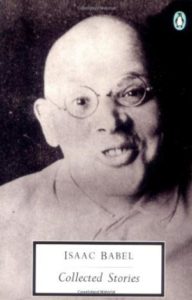
Collected Stories, Isaac Babel
The collection I’d recommend is one that doesn’t exactly exist now and never existed in the author’s life. But it should exist. It’s a subsection entitled “Autobiographical Stories,” in the David McDuff/Efraim Sicher translation of Babel: Collected Stories, from Penguin Classics. The stories all concern a mythologized version of Babel’s Odessa childhood. It’s as graceful and momentum-filled collection as any I’ve ever read and somehow, in its pointed brevity, reminds me of both “In Our Time” by Hemingway and “Jesus’ Son” by Denis Johnson. And/or, it makes me newly fond of that type of 120-pageish collection, that seems to be saying one very specific thing, in a series of little masterpieces—not a word extra.
–George Saunders, author of Lincoln in the Bardo
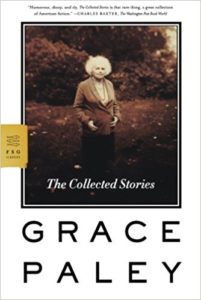
The Collected Stories by Grace Paley
The Collected Stories by Grace Paley is a marvel of a book, a brilliant example for any writer who is looking to understand voice, concision, humor, the passage of time, and how to convey political passion lightly. Paley started out as a poet, and it shows. I usually start classes with the very tiny “A Man Tells Me The Story of His Life,” because it’s a clear and smart way to illustrate how a good story has more than one story in it.
–Lauren Groff, author of Florida
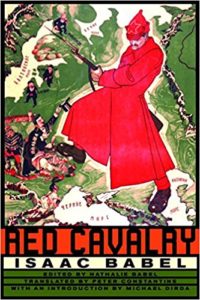
Red Cavalry, Isaac Babel
Every writer has his or her own things to say, and every writer discovers those things in his or her own way and says them in his or her own way—so I’m dubious that it’s possible to learn much about making one’s own writing by reading someone else’s. But I do think that the written evidence of a good writer’s mind is exhilarating and fortifying and can sharpen one’s aspirations—and if you want to read spectacularly graceful distillations of spectacularly intense, complex, ephemeral experience, you could hardly do better than stories in Isaac Babel’s Red Cavalry.
–Deborah Eisenberg, author of Your Duck is My Duck, forthcoming in September
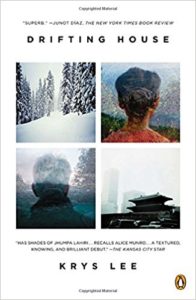
Drifting House, Krys Lee
Drifting House by Krys Lee is one of those books I’m constantly pressing into students’ hands. With both pinpoint focus and a large communal scope, the stories in this collection flash upon all aspects of the contemporary Korean/Korean-American experience—emigrating, being left behind, prosperity and poverty, crossings and the clash of the contemporary against the traditional. The stories can be subtle, like “At the Edge of the World” in which a North Korean father tries to adjust to a new life and a new family in LA. Or there can be a tour-de-force feel, as is found in “Beautiful Women,” which is sweeping in its portraits of the fates of vulnerable women in Korea. Behind all these stories is the vision of a serious literary artist, dealing with universal notions of alienation, dislocation and abandonment. There’s connection and self-fulfillment, too, as is found by the narrator of “Goose Father.” This is the opposite of escapist reading—it takes you to a new place, challenges you and then rewards your efforts.
–Adam Johnson, author of Fortune Smiles

The Collected Stories, Grace Paley
I argued with myself a lot over what collection I’d recommend to students, partly because in my life as a teacher of creative writing I rarely suggest a single book to all students: my recommendations are generally bespoke.
In the end I chose the collection that my own teachers chose piecemeal for me. When I was in her undergraduate workshop at Boston University, Sue Miller read us “An Interest in Life.” The next year, at the Iowa Writers Workshop, Allan Gurganus read “A Conversation With My Father.” Even now, about three decades later, I hear each story in each teacher’s voice. And who does the world need more these days than Grace Paley? I’m fudging, of course, because these two stories were published originally in different books, but The Collected Stories by Grace Paley is as good a manual as I know of what fiction can accomplish on the page and in the world.
–Elizabeth McCracken, author of Thunderstruck
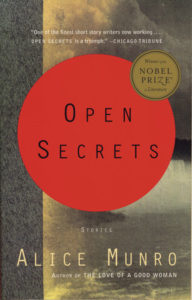
Open Secrets, Alice Munro
Alice Munro’s Open Secrets is so liberating and exciting for any new story writer to feel her open textures, her bold reach, her plainness, with no showing off, no special effects. She reminds us that there’s no formula for a story, it can be as loosely woven as you like, as long as the inner logic works organically. Easier said of course, much easier said, than done.
–Tessa Hadley, author of Bad Dreams and Other Stories
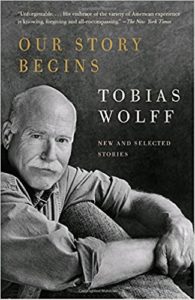
Our Story Begins, Tobias Wolff
Tobias Wolff’s Our Story Begins is much more than a vast manual of examples of how to build great characters, unforgettable situations, and powerful dialogues. It shows how great stories are always born of small details and grow thanks to a power of invocation that is reinforced word by word, as a vital spell, which can only be built by walking hand in hand with the reader.
–Samanta Schweblin, author of Fever Dream
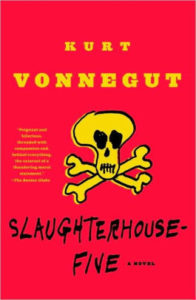
Slaughterhouse-Five, Kurt Vonnegut
(Eds: We know this isn’t a short story collection, but…) The book I most recommend to writers starting out is Slaughterhouse-Five by Kurt Vonnegut. The fact that it is a sci-fi autobiographical book shows how we have to tell any story any which way we want. A story about death can be funny a story about losing can actually be uplifting and the story of your life doesn’t necessarily have to be hyper realistic. The ability to expose that one-of-a-kind feeling of a human experience calls for a vivid cocktail of sincerity and imagination and Vonnegut has both big time.
–Etgar Keret, author of Seven Good Years
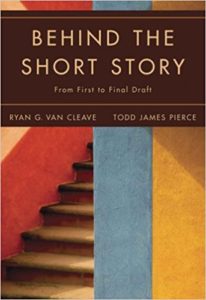
Behind the Short Story: From First to Final Draft, edited by Ryan G. Van Cleave and Todd James Pierce
It is a thoughtfully put together book, designed as a craft book with writing prompts after each story. But the best parts are the essays accompanying each story, written by the author, commenting on the inspiration and the challenges to writing that story, and in the process demystifying the process of writing. The essays are so informal, speaking directly and honestly to the aspiring writer. Authors include: George Saunders, Mary Gaitskill, etc.
–Helon Habila, author of The Chibok Girls and editor of The Granta Book of the African Short Story
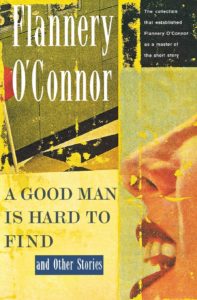
A Good Man Is Hard to Find, Flannery O’Connor
Every young writer should read Flannery O’Connor’s A Good Man Is Hard to Find at least three or four times. If you’ve ever thought creativity was opposed to clarity, or that funny stories aren’t serious, or that stories about abnormal people are about abnormal people, or that the road to the realistic was through realism—O’Connor is here to disabuse you, with pleasure. And do take note of her characterization and story structure, too! Textbook.
–Gish Jen, author of Girl at the Baggage Claim: Explaining the East-West Culture Gap
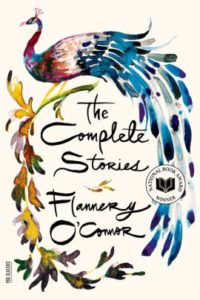
The Complete Stories, Flannery O’Connor
I’d put in a plug for Flannery O’Connor’s Complete Stories, since I thought they were marvelous instruction in how to manage deadpan comedy and potentially melodramatic violence (or the threat of violence) in the service of getting around the modern reader’s defenses, since, as she put it, when you’re writing literature, you’re trying to get people who don’t want to listen to listen, and trying to get people who don’t want to see to see.
–Jim Shepard, author of The World to Come
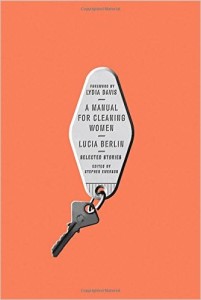
A Manual For Cleaning Women, Lucia Berlin
These days I most often recommend Lucia Berlin’s A Manual for Cleaning Women. It’s essential reading for writers trying to capture the texture of life on the margins of our increasingly brutal society without the prose itself becoming brutal or brittle. I was introduced to Berlin’s work by one of her protégés, Chip Livingston, whose tremendously supple collection of prose, Naming Ceremony, I also highly recommend.
–Claire Vaye Watkins, author of Gold Fame Citrus

The Complete Stories, Flannery O’Connor
O’Connor’s works are full of evil mockery, occasionally reminiscent of Baudelaire or Kundera. Don’t expect to find things like love, tenderness, or sentiment in her stories. This makes me tremendously happy.
–A Yi, author of Grey Stories and A Perfect Crime
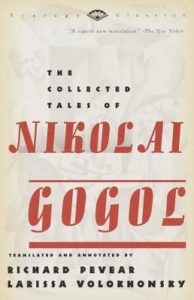
The Collected Tales, Nikolai Gogol
That’s easy. Mostly and mainly for the short story “The Nose”—which teaches more in one story about calmly building a reality than pretty much any work I can name. It’s an impossible story to execute, and he does it so simply and naturally. A man wakes up without his nose and chases it around town trying to talk it back onto his face. Perfection!
–Nathan Englander, author of Dinner at the Center of the Earth
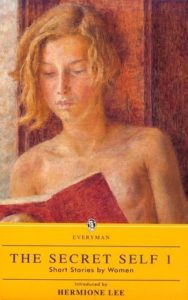
The Secret Self: A Century of Short Stories by Women, edited by Hermione Lee
This book is stuffed full of superstars from Nobel Prize winners (Lessing, Munro) to Pulitzer winners (Walker, Welty, Porter, Stafford) and Booker Prize winners (Atwood, Gordimer). The classics are here too, Mansfield with The Daughters of the Late Colonel, Cather’s Coming, Aphrodite! and O’Connor’s Revelation. The anthology is an overwhelming display of substance and skill, with dazzling variations in style and voice. I read it when I first started writing (and reading as a writer) and it has been one of my best investments. I also credit it with introducing me to the work of Anita Desai and Jean Rhys, who over the years became favorite, influential writers.
–Leila Aboulela, author of Elsewhere, Home
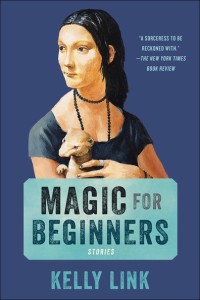
Magic For Beginners, Kelly Link
A one-size-fits-all story collection does not exist, of course—sometimes a writer needs some Borges and sometimes she needs some Lydia Davis. The writer who’s never heard of Barry Hannah probably requires a dose of Airships, and the writer who has never read Steven Millhauser needs to fall into “In the Reign of Harad IV” ASAP.
But if there’s one collection I find myself recommending more than others lately, it’s Kelly Link’s Magic For Beginners. Lots of student writers read Harry Potter or Percy Jackson as kids; maybe in their teens they moved on to Stephen King or Bradbury or Gaiman or (one hopes) LeGuin. I’m learning that these writers, when they’re being asked to read Edith Wharton or John Updike or Melville, are dazzled by Link’s ability to plant multiple limbs in multiple genres. She fuses childhood terrors with adult estrangement; her stories are gorgeous, delicate, spooky, human, and deeply layered.
–Anthony Doerr, author of All the Light We Cannot See

The short stories of Anton Chekhov. Each is an entire entity, a small universe. Classically written, very strong, and it lives in your mind for a long time after you read it, so it gives us a kind of insight, and I like Chekhov’s endings—they are open, and they leave the reader with something like uneasiness, they’re like containers for the readers’ projections. They are perfect. Also, Chekhov and I share the same birthday: January 29.
–Olga Tokarczuk, author of Flights
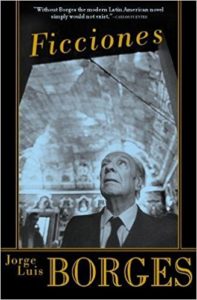
Ficciones, Jorge Luis Borges
Ficciones by Jorge Luis Borges is no longer my favorite short story book. I could name dozens I love more and held more dear—but when I read it, at age 12 I think, maybe younger, it blew my mind in a way that taught me that fiction was a territory of freedom unlike any other, where if I’d venture, I’d have immense powers. The possibilities that these stories offer, the sheer power of the imagination displayed here, is unforgettable. And for me to read it in Spanish, to read this kind of wizardry in my language, was just a joy.
–Mariana Enriquez, author of Things We Lost in the Fire
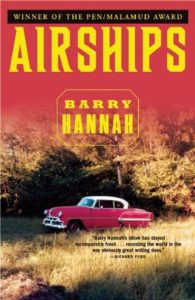
Airships, Barry Hannah
Hannah’s work was an attack on hungry time itself—his words—and the campaign was successful. His stories are alive. I recommend them to readers and writers for the surprise and uplift of his prose. His sentences abound with syntactical twists, archaic words, bardlike phrases, Biblical notes. Where else are the lovers so wild with longing they confess “I want to rip her arm off. I want to sleep in her uterus with my foot hanging out.” Humor, horror, heartbreak, and the music he makes with those sentences all are to be found inAirships.
–Christine Schutt, author of Pure Hollywood
Rennai Shosetsushu (Collected Love Stories), Edited and Translated by Sachiko Kishimoto
This (from a Japanese perspective) is a foreign collection of strange love stories, including Ali Smith’s “May,” A.M. Holmes’ “A Real Doll, ” and Ray Vukcevich’s “By the Time We Get to Uranus,” among others. These various loves probably considered odd by “ordinary” people have been brought together in one compact sample that strikes me for its sheer unadulterated purity. This book also teaches us about the freedom of fiction. A place that is closer to truth than reality can be really strange, and I love how this magical book leads us there.
–Sayaka Murata, author of Convenience Store Woman, as translated here by Ginny Tapley Takemori
![]()
![]()
The preceding is from the new Freeman’s channel at Literary Hub, which will feature excerpts from the print editions of Freeman’s, along with supplementary writing from contributors past, present and future. The latest issue of Freeman’s, a special edition featuring 29 of the best emerging writers from around the world, is available now.
John Freeman
John Freeman is the editor of Freeman’s, a literary annual of new writing, and executive editor of Literary Hub. His books include How to Read a Novelist and Dictionary of the Undoing, as well as a trilogy of anthologies about inequality, including Tales of Two Americas, about inequity in the US at large, and Tales of Two Planets, which features storytellers from around the globe on the climate crisis. Maps, his debut collection of poems, was published in 2017, followed by The Park in 2020. His work has been translated into more than twenty languages and has appeared in The New Yorker, The Paris Review, and The New York Times. He is the former editor of Granta and teaches writing at NYU.



















